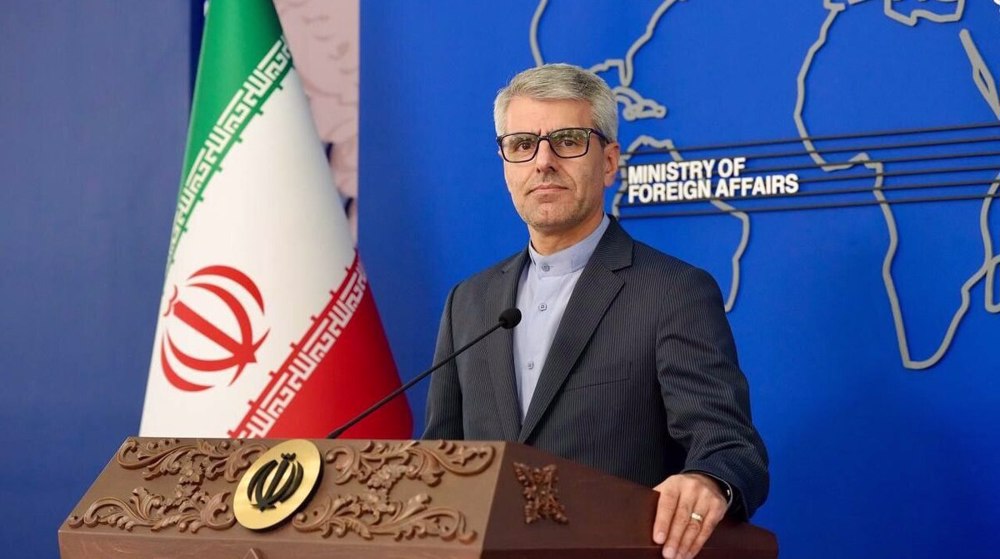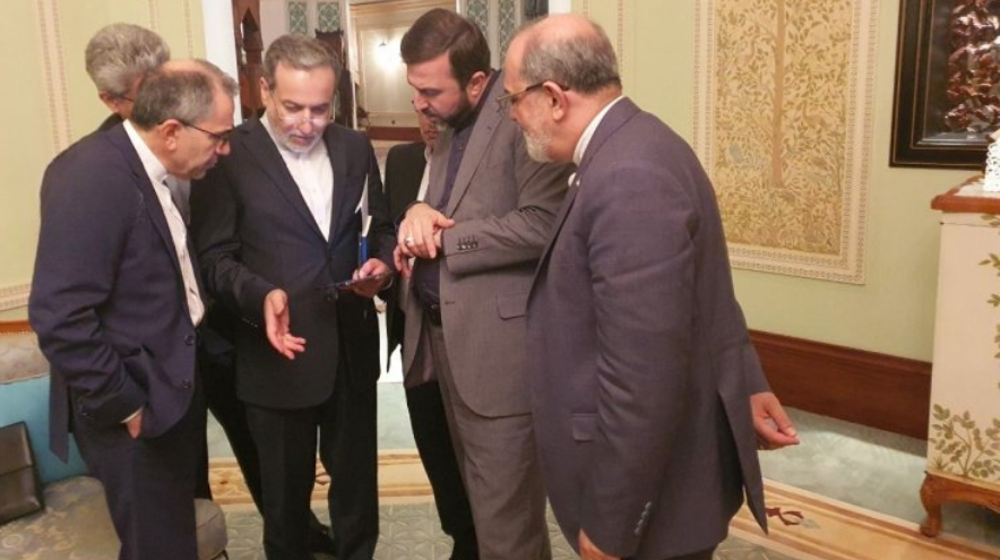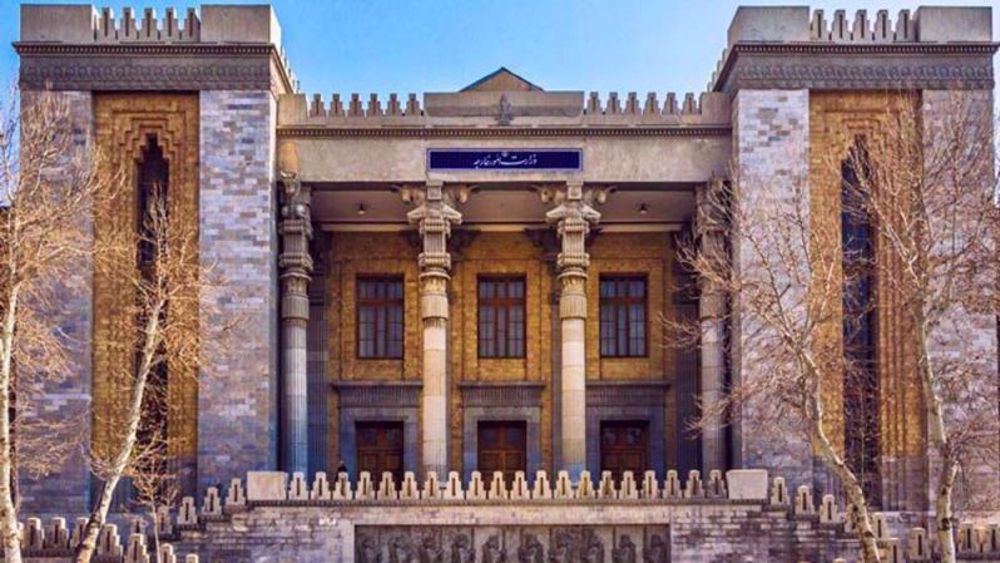Zionist lobby behind US visa restrictions: Iran
Iranian Foreign Ministry Spokesman Hossein Jaberi Ansari says the recently devised visa restrictions in the US, which affect dual national Iranians and people who have visited Iran, were pushed through under the pressure of Zionist lobby groups.
During his weekly press briefing on Monday, Jaberi Ansari said the recently passed legislation in Washington was part of the Zionist campaign to prevent and later to undermine the nuclear agreement between Iran and the P5+1 group of world countries.
On Saturday, Washington passed a law affecting its Visa Waiver Program (VWP), which normally exempts nationals from 38 countries from having to obtain visas to visit the United States. As a result of the changes, the program no longer includes dual nationals from Iran, Iraq, Syria and Sudan as well as anyone else who has traveled to those countries in the past five years.
The US has sought to reassure Iran that the law will not come in the way of the implementation of America’s commitments under the nuclear agreement, known as the Joint Comprehensive Plan of Action (JCPOA), with the Islamic Republic.
On Sunday, US Secretary of State John Kerry wrote a letter to Iranian Foreign Minister Mohammad Javad Zarif, saying the visa changes “will not in any way prevent us from meeting our JCPOA commitments.”
Pointing to Kerry's letter, Jaberi Ansari said the US is obligated under a UN Security Council resolution to carry out its commitments outlined in the JCPOA, adding that Iran's criteria for adherence to the deal is the US' implementation of the agreement.
Asked whether Iran would remain committed to the nuclear deal following the legislation, Jaberi Ansari said that an Iranian committee charged with overseeing the implementation of the JCPOA will make the necessary decisions regarding Tehran’s commitment to the deal.
“We will make all our efforts in order for both sides to honor their commitments and prevent the violation of decisions and obligations,” he said.
The nuclear agreement was reached between Iran and the P5+1 group of countries – the United States, Britain, France, China, and Russia plus Germany – in the Austrian capital of Vienna on July 14.
On Turkey-Israel ties
Reacting to the recent moves by Turkey in line with normalizing its relations with the Israeli regime, which is pressing ahead with its deadly crackdown on Palestinians in the occupied territories, Jaberi Ansari said Muslim countries should adopt policies that guarantee the interests of Islamic nations.

“Islamic countries should adopt policies that do not negatively affect their interests, the interests of the Islamic Ummah and the basic rights of the Palestinian nation that has been fighting the occupation for decades,” he said.
Israel and Turkey recently reached a preliminary agreement to normalize ties following the deterioration in relations in 2010, unnamed officials from Tel Aviv and Ankara said last week.
On May 31, 2010, Israeli commandos attacked the Turkish-flagged MV Mavi Marmara in the Mediterranean Sea, killing nine Turkish citizens and injuring about 50 other people. A 10th died last year after four years in a coma.
Jaberi Ansari said that Ankara’s move to improve ties with Tel Aviv “does not present a good picture to the region… Turkey has problems with [its] neighbors,” adding that Ankara should adopt a different policy with regard to the Israeli regime.
The Iranian official further called on Turkey to pave the ground for the settlements of regional problems through adoption of policies in cooperation with its neighbors.
The thaw in Tel Aviv-Ankara relations comes at a time when tensions have been running high between Turkey and its neighboring country of Iraq particularly since December 4, when Turkey deployed heavily armed soldiers supported by some two dozen tanks at the base.
Ankara claims that its troops have been deployed in northern Iraq to train Iraqi Kurdish Peshmerga fighters against the Daesh Takfiri terrorist group, and that the move was in line with previous agreements with the Baghdad government. Iraq, however, denies any such deal.
Jaberi Ansari said that any action against terrorism should be based on respecting the sovereignty of other countries.
Turkey is widely said to be one of the main supporters of militant groups in Syria. Ankara has been accused of actively training and arming the Takfiri militants and facilitating their safe passage into the Arab country.

Iran warns ‘moving the goalposts’ could derail Tehran-Washington talks

Iran’s enrichment ‘non-negotiable’, talks fruitless under pressure: FM

Iran summons Argentine envoy over accusations against top officials
Saudi defense minister in Iran for talks on regional developments
Three days from freedom: 64th Palestinian abductee dies in Israeli captivity
IAEA should maintain neutrality in Tehran-Washington talks: Iran nuclear chief
VIDEO | Press TV's news headlines
Hamas: Israel tortures Palestinian abductees while we treat captives humanely
Israeli captive in Gaza holds Netanyahu responsible for continued captivity
Tehran rejects 'baseless' UK claims about links to criminal groups
Palestinian hospital chief ‘exhausted from torture’ in Israeli prison: Lawyer












 This makes it easy to access the Press TV website
This makes it easy to access the Press TV website